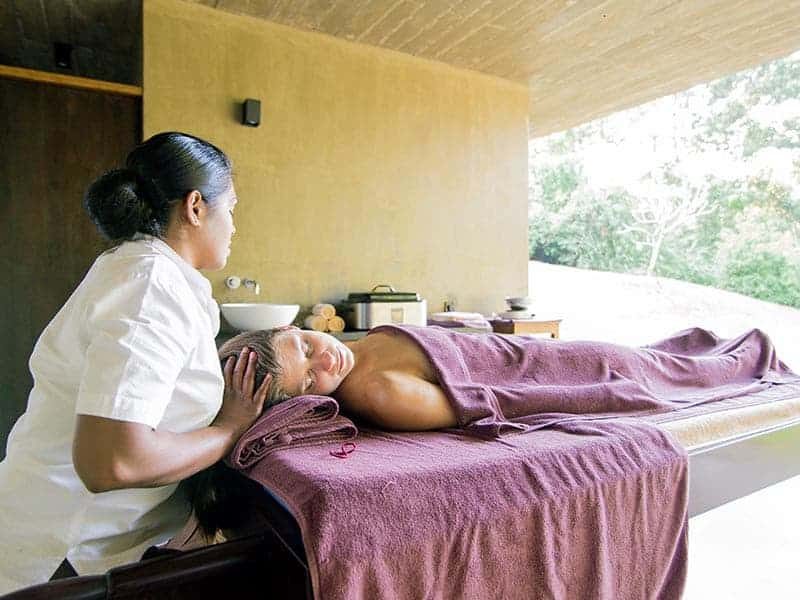In the hustle and bustle of modern life, achieving regular quality sleep is almost impossible. Balancing family responsibilities with a career and ensuring your social life is not dead, leaves little to no room for one’s body and mind to rest and recover. The significance of quality sleep often gets overlooked. Fortunately, a growing trend in wellness tourism is highlighting the importance of prioritizing restorative rest. Enter the world of sleep retreats and sanctuaries designed to rejuvenate the mind, body, and soul through various practices tailored to enhance sleep quality and overall well-being in a sustainable and holistic manner. Sleep retreats do not focus on quick fixes but rather through various tools such as meditation and yoga, which ensures one is able to achieve this restorative sleep even once one gets back to their busy schedule.
The Science of Sleep
Research has proved that sleeping doesn’t mean that one’s brain is totally inactive. Even though you are less aware of your surroundings, you still have plenty of brain activity that has predictable patterns. The stages of sleep fall broadly into two categories: rapid eye movement (REM) sleep and non-REM (NREM) sleep. There are 3 stages in NREM and the final step in the cycle is REM sleep, which is where the dreams occur. One cycle normally takes about 90-120 minutes and most people go through 4 or 5 cycles per night.
The value of sleep extends far beyond just feeling refreshed in the morning. Scientific research cannot emphasize enough the importance sleep plays in physical health, mental clarity, and emotional balance. A person’s circadian rhythm (internal body clock) controls memory consolidation, the timing of hormone secretion and body healing. Therefore, it is very important to get into a regular sleeping schedule.
A healthy sleep is known to be vital for the brain’s ability to adapt to input (brain plasticity), remove waste products from brain cells, and increase metabolism and immunity. There are many negative consequences for those who don’t get enough quality sleep. These health risks include cardiovascular problems, higher risk of type II diabetes, impaired thinking and memory, symptoms of depression and anxiety and much more.
Some people face sleep disorders and conditions that disturb normal sleep patterns. There are many sleep disorders, some include, insomnia, sleep apnea, hypersomnia etc. As discussed previously, not getting a healthy sleep could be dangerous to one’s overall well-being. Therefore, making lifestyle changes, such as a healthy diet and exercise in order to achieve good sleeping habits is important.
The Role Meditation Plays in Sleep:
Although meditation started thousands of years ago to help deepen understanding of the mystical forces of life, it is now used to relax, lower stress, and calm your mind. It is like a mental workout that helps one relax and de-stress, two key ingredients for a good night’s sleep. There are many types of meditation that help in improving sleep quality. For example, mindfulness meditation involves focusing on your breathing and bringing your mind’s attention to the present rather than thinking of the future or the past. This evokes a relaxation response, which can ease stress and improve sleep quality. Body scan meditation helps one pay close attention to the whole body and how it feels in a slow and deliberate progression. This may help dial down the tension, calm down, and dampen anxiety, making it effective for some sleep disorders. Overall, research indicates that meditation helps with sleep problems as it increases melatonin (sleep hormone), increases serotonin (precursor of melatonin), reduces heart rate, decreases blood pressure, and activates parts of the brain that control sleep.
Hatha Yoga: A Path to Restorative Sleep:
Yoga, an ancient practice originating from India, offers a holistic approach to fostering restorative sleep. It’s more than mere physical postures, or asanas, because yoga focuses on breathwork and meditation, synergistically calming the nervous system and preparing the body for deep rest. According to a study in 2016, it was concluded that Hatha yoga reduced anxiety and another study stated that practicing yoga significantly reduces signs of depression. Research also shows that yoga reduces stress and chronic pain and improves sleep patterns, enhancing overall well-being and quality of life.
Other Practices at Sleep Retreats:
In addition to meditation and yoga, sleep retreats offer many complementary practices that are aimed at optimizing sleep quality. Techniques such as aromatherapy, sound therapy, and journaling are a few that are employed to create the most suitable atmosphere for relaxation and rejuvenation. Personalized Ayurvedic and Western spa treatments that induce better sleep are also available, as well as mind and body yoga, yoga Nidra therapy, to de-stress and improve sleep quality. Additionally, sleep retreats look into all aspects to ensure that meditation and yoga are complemented in promoting restful sleep. This includes guided group nature walks, lifestyle discussion and healthy living guidance, access to spa facilities such as a sauna, steam room and thermal salt water bath and of course customized and balanced meals to reduce cravings.
Conclusion
As we hustle through the chaos of modern life, getting good sleep is like hitting the jackpot of our health and happiness. But it does seem impossible to achieve. Making lifestyle changes, practicing yoga, and figuring out what meditation techniques work for you and how best you should practice them to get the best sleep just seems too much to figure out with all that is already going on. That’s where sleep retreats come in – a haven to escape the chaos, recharge your batteries, and fix your sleep. With a mix of meditation, yoga, and other practices and activities, this is a great way to feel more rested, more alive, and just all-round better. And the best part is that this is not a temporary solution. Sleep retreats equip you with sustainable tools and help you make feasible and practical lifestyle and behavioural changes that you are able to continue even after you leave. So, make sleep a priority and give a sleep retreat a try to transform your mind, body, and soul!


